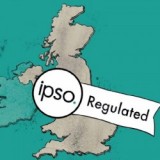 A regional daily which wrongly reported that a man was believed to have committed suicide has been cleared of any wrongdoing by the press watchdog.
A regional daily which wrongly reported that a man was believed to have committed suicide has been cleared of any wrongdoing by the press watchdog.
South Cumbria daily The Mail ran a story about the death of Barrow-in-Furness man Matthew Edwards, which quoted a local MP as saying a “seventh young person in Barrow has suspectedly taken their life” and offering praise for the newspaper’s ‘Time to Talk’ mental health campaign.
The Mail had been told by at least four separate local sources, including a well-known local mental health charity campaigner, that Mr Edwards had taken his own life – claims which were subsequently confirmed off the record by Cumbria Police.
The story prompted a complaint to the Independent Press Standards Organisation from the man’s family, who said that while his death was currently unexplained, there was no suggestion that he had taken his own life.
The Mail had attempted to find contact details for the family prior to publication but had been unable to do so.
However, IPSO found that The Mail had handled the claims in an appropriate way and had put the correct position on record promptly once it became clear.
The Mail’s story included a tribute from a former colleague and reported that the police were not treating the death as suspicious.
It said that the death was believed to be the seventh non-suspicious death in the town since Boxing Day, and quoted the MP as saying: “To hear that a seventh young person in Barrow has suspectedly taken their life in such a short space of time is so profoundly sad.”
Mr Edwards’s brother Peter Edwards claimed in his complaint to IPSO that the article gave the misleading impression that his brother had taken his own life because the quote from the MP referred to suicide and the six other non-suspicious deaths in the town which the newspaper had linked to his brother’s were all widely known to be suicides.
Claiming The Mail had breached Clause 1 (Accuracy), Clause 2 (Privacy) and Clause 4 (Intrusion into grief and shock) of the Editors’ Code of Practice, he said Cumbria Police had told him that they had not given information to the paper about a cause of death, and so he was very concerned that the article appeared to have reported speculation about it before any inquest had been held.
He said that the death was currently unexplained, and that there was no suggestion that his brother had taken his own life, adding further that he was concerned that his family had not been contacted.
Mr Edwards also said a family friend had complained to The Mail via Facebook Messenger between the story’s appearance online, on 21 March, and in print, on 22 March.
In response, The Mail said that it was very sorry that the article had caused distress and said that there was no intention to cause upset.
It said after the local sources had told it that the man had taken his own life, it had then sought to confirm with Cumbria Police’s senior press officer, both on the phone and in writing, while also attempting to obtain contact details for the family.
The Mail provided emails from the police confirming the identity of the man, and the fact his death was being treated as non-suspicious, with the paper then asking the police if they would be wrong to report the death as a suicide.
The police responded that they would have corrected The Mail had they put any incorrect details of what had happened to them, which the publication said was the usual way for the police to confirm details to reporters.
The newspaper then took the decision to include the quotation from the MP which said that the man had “suspectedly” taken his own life and that an inquest had yet to be held – asserting that the article did not give the impression that it was an established fact that the complainant’s brother had taken his own life.
A clarification was subsequently published by the paper to confirm the death was being treated as unexplained by the police and there was no suggestion Mr Edwards had taken his own life.
IPSO found the steps taken by The Mail were the appropriate way to handle claims which had been made prior to an inquest being held, and there was no failure to handle publication sensitively, while the reference to “likely suicide” in the quote from the MP and information about the newspaper’s mental health campaign did not constitute a failure to take care over accuracy because there was no suggestion at the time of publication that suicide was not a possible cause of death.
The clarification put the correct position on record and was printed promptly a day after the original article and with due prominence alongside a follow-up tribute piece.
The complaint was not upheld, and the full adjudication can be read here.

 Follow HTFP on Twitter
Follow HTFP on Twitter